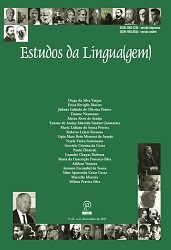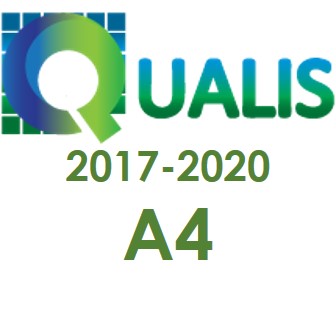Dilma and“radicals of the PT”: a discursive analysis
DOI:
https://doi.org/10.22481/el.v15i2.3546Keywords:
Discourse, Dilma Rousseff, Lula, Radical of PTAbstract
In this article, we discuss the relationship established discursively between the then pre-candidate for the 2010 presidential election, Dilma Rousseff, and the so-called "radical" PT. From the reports of excerpts analysis conveyed in Veja magazine, we seek to show how is the conflict regarding the discursive game that legitimized in different discursive positions. In addition, concurrently also we discussed the discursive relationship established between Dilma and Lula as political subjects, in which we identify a close relationship between them during the period.
Downloads
References
MAINGUENEAU, D. Gênese dos discursos. Tradução: Sírio Possenti. Curitiba, Criar Edições, 2005. Edição original: 1984.
ORLANDI, Eni P. As formas do silêncio: no movimento dos sentidos. 6a edição. Campinas: Editora da Unicamp, 2007.
PÊCHEUX, M. Semântica e discurso: uma crítica à afirmação do óbvio. Tradução de Eni P. Orlandi et al. Campinas: Ed. da UNICAMP, 3a edição, 2010. Edição original: 1975.
PÊCHEUX, M. O discurso: estrutura ou acontecimento. Trad. Eni P. Orlandi. 6a edição. Campinas: Pontes, 2012. Edição Original: 1983a.
PÊCHEUX, M. Papel da memória. In: ACHARD, P. et al. Papel da memória. 3a edição. Campinas: Pontes, 2010. p. 49-57. Edição original: 1983b.
POSSENTI, S. Slogan, polifonia, memória. In: FONSECASILVA, M. da C.; POSSENTI, S. (Org.). Mídia e redes memória. Vitória da Conquista: Edições Uesb, 2007. p. 147-160.
SECCO, L. História do PT: 1978-2010. 3a edição. Cotia, SP: Ateliê editorial, 2012.
Downloads
Published
How to Cite
Issue
Section
License

Estudos da Língua(gem) is licensed under a Creative Commons Attribution 4.0 International License.
Authors who publish in the journal Estudos da Língua (gem) agree with the following terms:
The journal Estudos de Língua(gem) maintains the copyrights of the contributions published. These rights include the publication of the contribution and make its content available for free through the portal.













